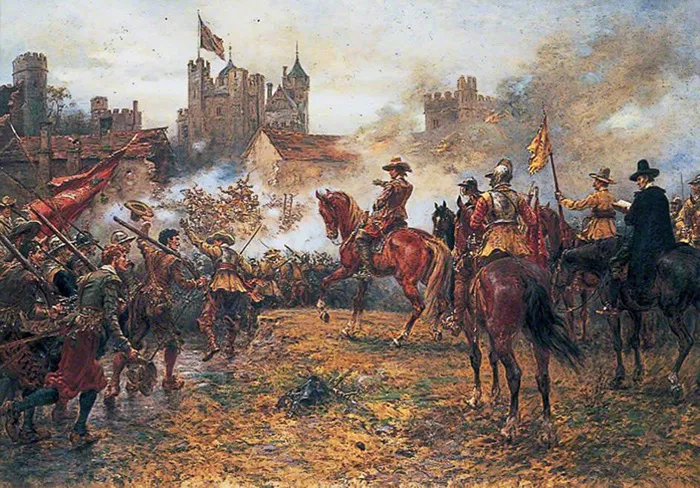January 22 has witnessed several significant events throughout British history, ranging from military confrontations to the birth of influential figures. This article will explore these events in detail, providing a comprehensive overview of their historical context and implications.
What Happened on January 22 in British History?
The Battle of Basing (871)
On January 22, 871, the Battle of Basing took place in the kingdom of Wessex, now part of modern-day Hampshire. This battle was part of the larger conflict between the Anglo-Saxon kingdoms and Viking invaders. The Saxon army, led by King Ethelred, faced a formidable force of Danes. Despite being heavily outnumbered, Ethelred’s forces engaged in combat with the hope of defending their territory.The battle was characterized by fierce fighting but ultimately resulted in an indecisive outcome. The Saxons suffered significant losses, which weakened their position against further Viking incursions. Ethelred himself would die later that year, leading to the ascension of his brother, Alfred the Great, who would become one of England’s most revered monarchs. Alfred’s reign was marked by continued conflict with the Danes and significant cultural and legal reforms that laid the foundation for a unified England.
Birth of Francis Bacon (1561)
Another notable event on January 22 is the birth of Francis Bacon in 1561. Bacon was a philosopher, statesman, and essayist who played a crucial role in the development of the scientific method and empirical research. He served as Attorney General and later as Lord Chancellor of England.Bacon’s works emphasized the importance of observation and experimentation in scientific inquiry, contrasting sharply with the reliance on ancient texts that characterized much of medieval scholarship. His most famous works include “Novum Organum,” where he argues for a new approach to science that prioritizes inductive reasoning over deductive reasoning. Bacon’s influence extended beyond philosophy into politics and law, making him a pivotal figure in shaping modern thought.
The Massacre at Isandlwana (1879)
A tragic and significant event in British military history occurred on January 22, 1879, during the Anglo-Zulu War: the Battle of Isandlwana. This battle marked one of the first major confrontations between British forces and Zulu warriors in South Africa.On this day, a contingent of British troops was surprised and overwhelmed by Zulu forces at Isandlwana. The British were poorly prepared for the ferocity and tactical prowess displayed by the Zulu warriors. Approximately 1,300 British soldiers were killed in what became known as one of Britain’s worst military defeats during colonial conflicts.The loss at Isandlwana had profound implications for British military strategy and colonial policy in Africa. It highlighted underestimations of indigenous forces and led to changes in tactics for subsequent engagements during the war. The Zulu victory was short-lived as British reinforcements eventually retaliated with greater force.
Death of Queen Victoria (1901)
On January 22, 1901, Queen Victoria passed away at Osborne House on the Isle of Wight at the age of 81. Her death marked the end of an era known as the Victorian Age, which was characterized by industrial expansion, cultural flourishing, and vast territorial expansion of the British Empire.Victoria’s reign lasted for over 63 years, making her one of the longest-serving monarchs in British history. Her death prompted widespread mourning across Britain and its colonies. Following her passing, her son Albert Edward ascended to the throne as King Edward VII.Victoria’s legacy includes her role as a symbol of British imperial power and her influence on social norms and values during her reign. Her image became synonymous with both progress and conservatism in Victorian society.
Conclusion
January 22 has been a date marked by pivotal events that have shaped British history significantly. From military confrontations to births that influenced philosophy and governance, each occurrence reflects broader themes within Britain’s historical narrative.As we examine these events—such as battles against Viking invaders or Zulu warriors—we gain insight into Britain’s evolving identity through conflict and cultural development. Figures like Francis Bacon remind us how ideas can transcend time to influence future generations profoundly.In summary, January 22 serves as a reminder of both triumphs and tragedies within British history—a day that encapsulates moments that have defined a nation over centuries.
Related Topics:

